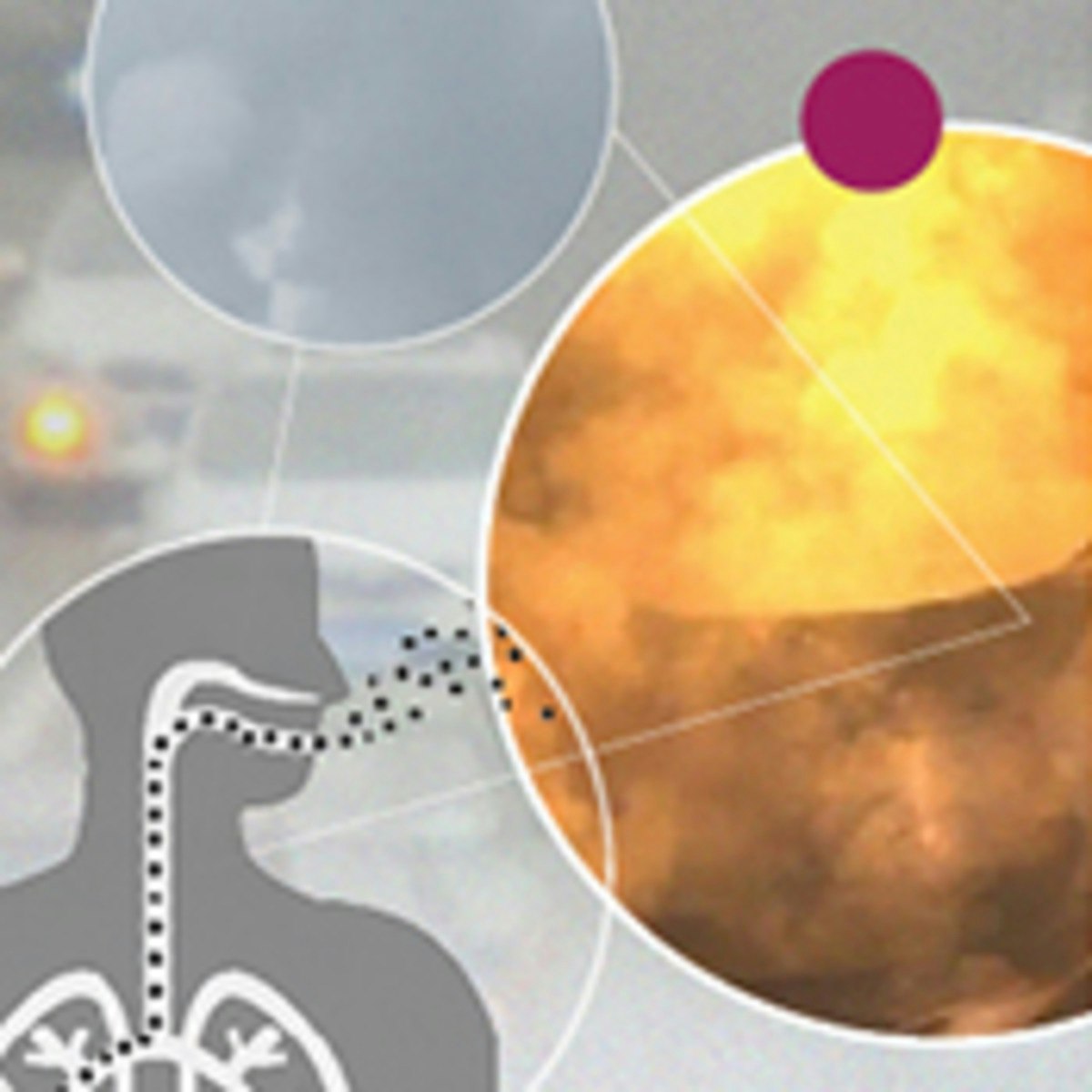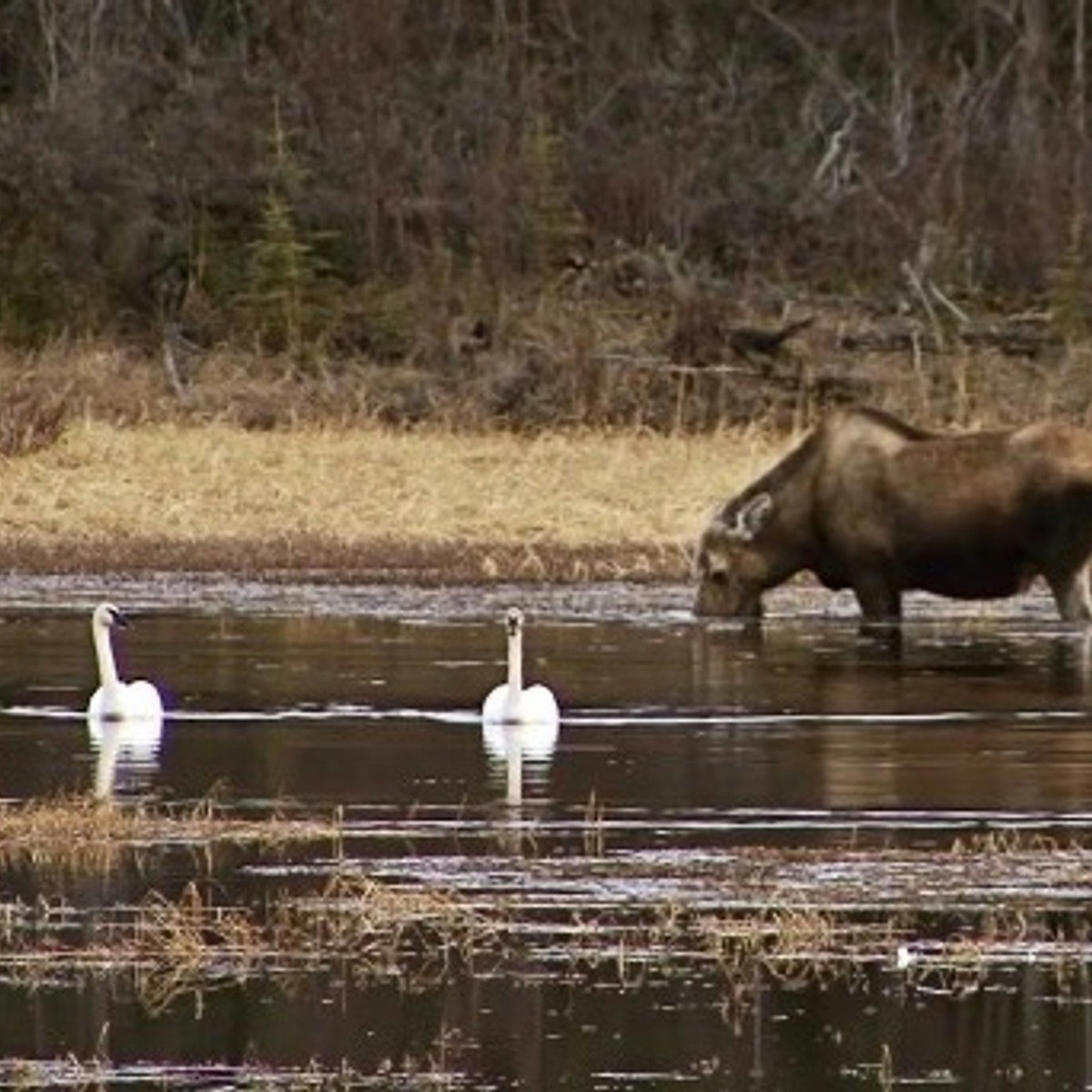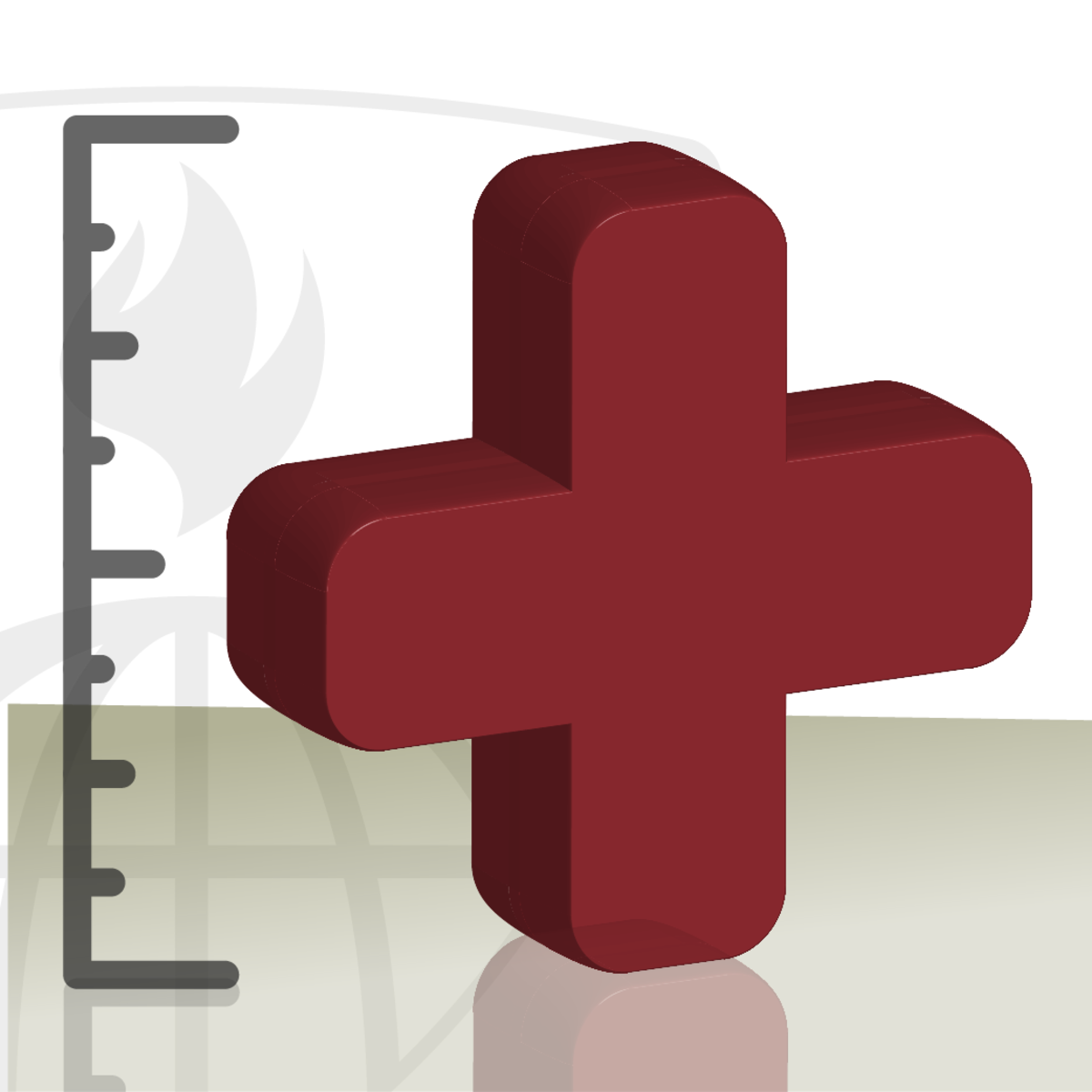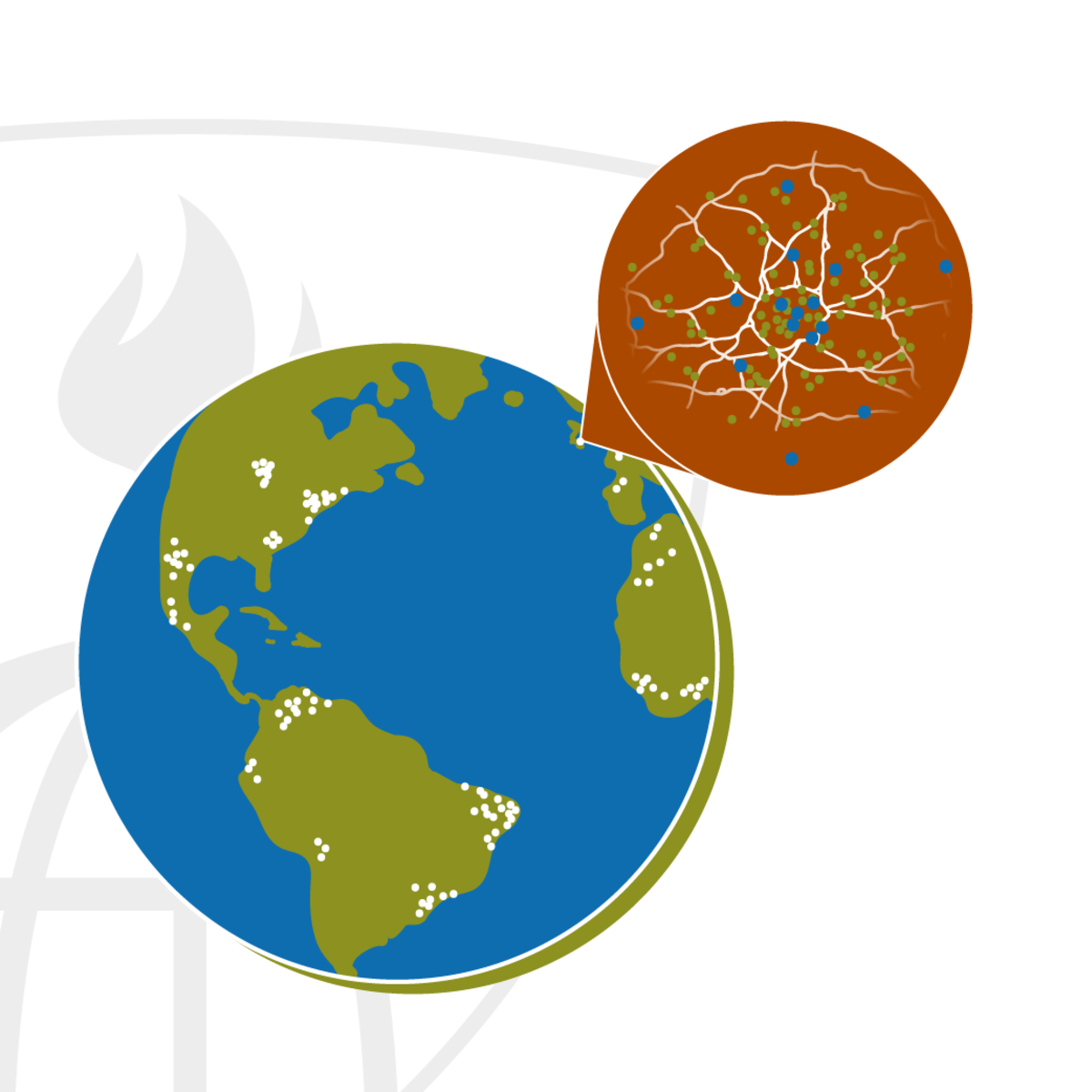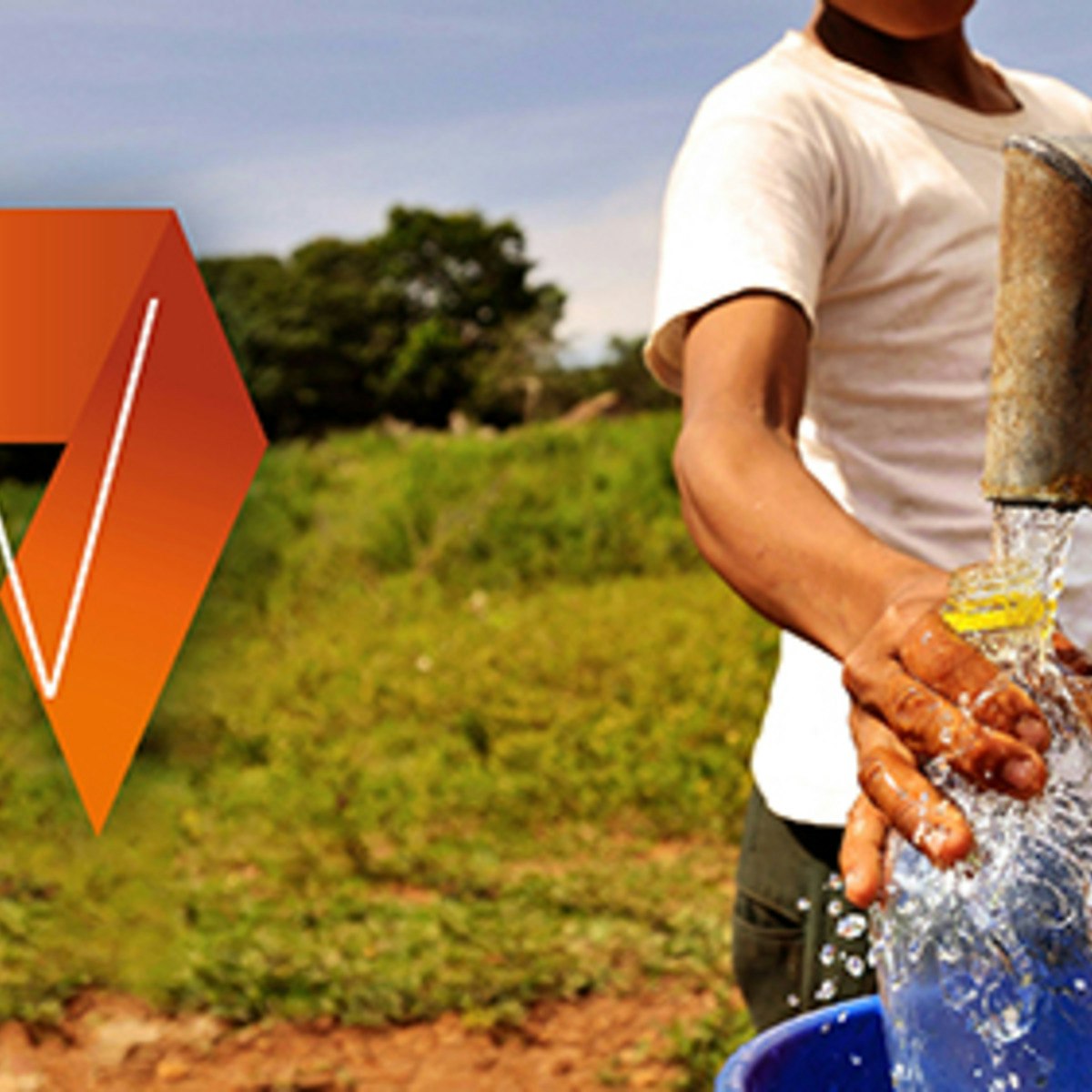Environmental Health Scientist
Exploring a Career as an Environmental Health Scientist
Environmental Health Science is a fascinating and vital field dedicated to understanding how environmental factors impact human health and well-being. Professionals in this area investigate the complex interplay between people and their surroundings – encompassing the air they breathe, the water they drink, the food they eat, and the physical spaces they inhabit. They work diligently to identify potential hazards, assess risks, and develop strategies to prevent disease and promote healthier communities.
Working as an Environmental Health Scientist can be deeply rewarding. You might find yourself pioneering research on the health effects of emerging contaminants, designing interventions to protect vulnerable populations from pollution, or advising policymakers on regulations that safeguard public health. This career offers a unique blend of scientific investigation, problem-solving, and community engagement, allowing you to make a tangible difference in people's lives and the health of the planet.
Introduction to Environmental Health Science
What is Environmental Health Science?
Environmental Health Science is a multidisciplinary field that focuses on the connections between the environment and human health. It draws upon principles from biology, chemistry, toxicology, epidemiology, and policy analysis to understand how various environmental exposures—chemical, physical, biological, and social—can affect individuals and populations. The core aim is to prevent human injury and illness by identifying and mitigating environmental hazards.
This field examines a wide range of potential risks, from pollutants in the air and water to contaminants in food and soil, workplace hazards, and the impacts of climate change. It looks at how these factors contribute to diseases like asthma, cancer, cardiovascular issues, and developmental problems. Environmental Health Scientists work to understand these links and develop evidence-based solutions.
Ultimately, Environmental Health Science seeks to create and maintain environments that support and promote good health for everyone. This involves not just scientific research but also translating findings into practical policies, regulations, and public health interventions designed to protect communities and ensure a healthier future.
A Brief History
The roots of environmental health stretch back centuries, with early civilizations recognizing links between sanitation, water quality, and disease. Formal public health efforts emerged in the 19th century in response to urban overcrowding and industrial pollution. Figures like Dr. John Snow famously traced a cholera outbreak in London to a contaminated water pump in 1854, demonstrating the power of epidemiological investigation in identifying environmental causes of disease.
This historical course offers a glimpse into Dr. Snow's pivotal investigation and its impact on public health thinking.
The 20th century saw significant advancements, spurred by growing awareness of industrial pollution, chemical hazards (like lead and pesticides), and the effects of radiation. Landmark legislation, such as the Clean Air Act and Clean Water Act in the United States, established regulatory frameworks to control pollution and protect public health. The field expanded to encompass occupational health, food safety, and the health impacts of the built environment.
Today, Environmental Health Science continues to evolve, addressing modern challenges like climate change, emerging infectious diseases linked to environmental shifts, and the health implications of complex chemical mixtures. The focus remains on understanding environmental influences on health across the lifespan and translating scientific knowledge into effective prevention strategies.
Key Goals and Intersections
The primary objectives of Environmental Health Science revolve around protecting and improving public health. This involves preventing diseases linked to environmental exposures, controlling pollution, and ensuring safe living and working conditions. Key goals include identifying environmental hazards, assessing the associated health risks, and developing interventions to reduce or eliminate these risks.
This field inherently intersects with several other scientific disciplines. Ecology provides understanding of how ecosystems function and how human activities impact them, which is crucial for assessing environmental health. Toxicology studies the adverse effects of chemical, physical, or biological agents on living organisms, directly informing risk assessments. Policy and law are essential for implementing regulations and interventions based on scientific findings.
These courses delve into the health impacts of specific environmental issues like climate change and air pollution.
Furthermore, environmental health science often engages with social sciences to address issues of environmental justice, understanding how environmental risks disproportionately affect certain communities. Collaboration across these fields is vital for a holistic approach to protecting both human health and the environment.
Core Responsibilities of Environmental Health Scientists
Environmental Health Scientists play a crucial role in safeguarding public health by investigating how the environment affects us. Their responsibilities are diverse, blending fieldwork, laboratory analysis, data interpretation, policy development, and community outreach.
Assessing Risks
A fundamental task for Environmental Health Scientists is risk assessment. This involves identifying potential environmental hazards – whether chemical pollutants, biological agents, or physical dangers – and evaluating the likelihood and severity of potential harm to human health. They collect data through environmental sampling (air, water, soil), surveys, and reviewing existing literature.
Scientists analyze this data to understand exposure levels and pathways. They might use statistical methods and modeling techniques to estimate the probability of adverse health effects within a population. This rigorous process helps prioritize environmental problems and informs decisions about necessary interventions or regulations.
The ability to quantitatively and qualitatively assess risk is central to the profession. It requires a strong foundation in scientific principles, analytical skills, and an understanding of toxicology and epidemiology.
Monitoring the Environment
Continuous monitoring of environmental conditions is essential for protecting public health. Environmental Health Scientists design and implement monitoring programs to track levels of pollutants in air, water, and soil, as well as other potential hazards like noise or radiation. This involves deploying sensors, collecting samples, and ensuring data quality.
They utilize various field instruments and laboratory techniques for analysis. This might include techniques like chromatography to identify chemical contaminants or microbiological assays to detect harmful bacteria. The data gathered through monitoring provides crucial information for assessing compliance with environmental standards and identifying emerging threats.
These courses introduce concepts related to monitoring specific environmental factors like indoor air quality and disease clusters.
Accurate and reliable monitoring requires meticulous attention to detail, proficiency with technical equipment, and adherence to standardized protocols. This ongoing surveillance forms the backbone of many environmental health protection efforts.
Informing Policy
Environmental Health Scientists often play a key role in shaping environmental policies and regulations. They translate complex scientific findings into understandable information for policymakers, government officials, and the public. Their research and risk assessments provide the evidence base needed to develop effective strategies for pollution control and health protection.
They may be involved in drafting regulations, setting exposure limits for contaminants, or advising on land use planning to minimize environmental health impacts. According to the U.S. Bureau of Labor Statistics (BLS), many environmental scientists work for government agencies to ensure compliance with regulations or for consulting firms helping businesses navigate these rules.
Effective communication skills, both written and oral, are crucial for translating scientific data into policy recommendations. This requires clarity, objectivity, and the ability to engage with diverse stakeholders.
Educating Communities
Raising public awareness and educating communities about environmental health risks is another vital function. Environmental Health Scientists develop and deliver educational materials and programs to inform citizens about potential hazards in their environment and how to protect themselves.
This might involve presentations at community meetings, creating informational websites or brochures, or working with schools and local organizations. They explain complex issues like air quality alerts, safe drinking water practices, or the risks associated with lead paint in an accessible manner.
Engaging with the community helps build trust and empowers individuals to take action to protect their health. It requires strong interpersonal skills, cultural sensitivity, and the ability to tailor communication to different audiences.
Educational Pathways for Environmental Health Scientists
Pursuing a career as an Environmental Health Scientist typically requires a strong foundation in the sciences, often culminating in specialized graduate study. The specific path can vary, but certain academic preparations are common.
Foundation: Undergraduate Studies
A bachelor's degree is generally the minimum requirement for entry-level positions in environmental health. Relevant undergraduate majors include environmental science, environmental health, public health, biology, chemistry, or geology. Coursework should emphasize core sciences such as biology, chemistry (general and organic), physics, and mathematics (including statistics).
Many programs also include introductory courses specifically focused on environmental health principles, toxicology, epidemiology, and environmental policy. Strong analytical and communication skills are also developed during undergraduate studies, which are essential for this career.
Gaining practical experience through internships or volunteer work with environmental organizations, health departments, or research labs during your undergraduate years can be highly beneficial. This exposure helps solidify theoretical knowledge and provides valuable insights into the day-to-day work.
Advancement: Graduate Programs
For many research, specialized, or leadership roles, a master's degree or doctorate (Ph.D.) is often required or preferred. Master's programs, such as a Master of Public Health (MPH) with an environmental health concentration or a Master of Science (MS) in Environmental Health Science, offer advanced coursework and specialized training.
Specializations at the graduate level might include areas like toxicology, industrial hygiene, environmental epidemiology, risk assessment, air quality management, water quality, or environmental policy. These programs typically involve advanced coursework, research projects or theses, and practical experience components.
A Ph.D. is generally necessary for high-level research positions, particularly in academia or government research institutions. Doctoral programs involve extensive original research, culminating in a dissertation that contributes new knowledge to the field. These programs develop deep expertise and advanced research skills.
record:26
Accreditation and Certification
When choosing an academic program, particularly in public health, look for accreditation. In the U.S., the Council on Education for Public Health (CEPH) accredits schools and programs of public health. Graduation from an accredited program can be important for certain job opportunities and certifications.
Professional certifications can enhance career prospects and demonstrate expertise. While not always mandatory, certifications like the Registered Environmental Health Specialist/Registered Sanitarian (REHS/RS) credential offered by the National Environmental Health Association (NEHA) are highly respected. Other relevant certifications exist for specific areas like industrial hygiene (Certified Industrial Hygienist - CIH) or hazardous materials management (Certified Hazardous Materials Manager - CHMM).
Requirements for these certifications typically involve meeting specific educational and experience criteria and passing a comprehensive examination. Maintaining certification often requires ongoing continuing education.
Online Learning and Skill Development
The digital age offers unprecedented opportunities for learning and skill development in environmental health science. Online courses and resources provide flexible and accessible pathways for both aspiring scientists and established professionals seeking to enhance their expertise or pivot their careers.
Leveraging Online Courses
Online courses are increasingly valuable for building foundational knowledge and acquiring specialized skills in environmental health. Platforms like OpenCourser aggregate offerings from universities and institutions worldwide, covering topics from introductory environmental science and public health principles to advanced toxicology, epidemiology, risk assessment, and data analysis.
For students, online courses can supplement traditional degree programs, allowing exploration of niche topics or reinforcement of core concepts. For professionals considering a career change or seeking advancement, online learning offers a way to gain necessary qualifications or update skills without disrupting current employment. Look for courses offered by reputable universities or professional organizations.
These courses provide foundational knowledge relevant to environmental health.
Many online courses offer certificates upon completion, which can be valuable additions to a resume. While an online course might not replace a full degree for certain roles, it demonstrates initiative and provides specific, verifiable skills. OpenCourser's Learner's Guide offers tips on maximizing the value of online learning and earning certificates.
Developing Complementary Skills
Beyond core scientific knowledge, certain technical skills are increasingly important in environmental health science. Proficiency in data analysis and visualization tools is essential for interpreting monitoring data, conducting epidemiological studies, and communicating findings. Online courses can provide training in statistical software (like R or SPSS) and data visualization platforms.
Geographic Information Systems (GIS) software is widely used for mapping environmental hazards, analyzing spatial patterns of disease, and planning interventions. Many online platforms offer introductory and advanced GIS courses tailored to environmental applications. Familiarity with database management and basic programming can also be advantageous.
Strong digital literacy, including the ability to navigate online databases, research literature effectively, and utilize collaboration tools, is fundamental in today's research and professional environment.
Project-Based Learning and Continuing Education
Many online courses incorporate project-based learning, allowing learners to apply concepts to real-world scenarios. Completing projects, such as analyzing a public health dataset or developing a mock risk assessment, builds practical skills and creates portfolio pieces to showcase abilities to potential employers.
For professionals already in the field, online learning is crucial for continuing education and staying abreast of the latest research, technologies, and regulations. Professional organizations often offer webinars, workshops, and online courses for continuing education credits required to maintain certifications.
These courses explore specific contemporary issues like sustainable diets and the health impacts of consumer products.
Exploring topics within Environmental Sciences, Sustainability, and Health & Medicine on OpenCourser can reveal new areas of interest and opportunities for skill development throughout one's career.
Career Progression in Environmental Health Science
A career in Environmental Health Science offers diverse pathways for growth and specialization. Progression typically involves gaining experience, developing expertise, and potentially taking on leadership or management responsibilities across various sectors including government, private industry, academia, and non-profit organizations.
Starting Your Career
Entry-level positions often involve roles like Environmental Health Technician, Field Inspector, Research Assistant, or Junior Specialist. These roles typically require a bachelor's degree in a relevant field. Responsibilities might include collecting environmental samples, conducting routine inspections (e.g., food establishments, water systems), assisting with data collection for research studies, or maintaining monitoring equipment.
These initial roles provide invaluable hands-on experience, exposure to different aspects of the field, and opportunities to learn from senior colleagues. Strong performance, continued learning (perhaps through online courses or workshops), and demonstrating initiative are key to advancing.
Building a professional network through organizations like the National Environmental Health Association (NEHA) or local public health associations can also be beneficial early in one's career.
Mid-Career Advancement
With several years of experience and potentially an advanced degree (Master's), Environmental Health Scientists can move into more specialized or senior roles. This might include positions like Environmental Health Specialist, Project Manager, Policy Advisor, Industrial Hygienist, or Environmental Epidemiologist.
Responsibilities at this stage often involve greater autonomy, leading projects, managing small teams, conducting more complex investigations or risk assessments, interpreting regulations, developing environmental management plans, or providing expert consultation. Specialization in areas like air quality, water quality, hazardous waste, food safety, or occupational health becomes more common.
Salaries tend to increase with experience and responsibility. While varying significantly by location, sector, and education, the BLS reported a median annual wage of $78,980 for Environmental Scientists and Specialists (including health) in May 2023. Professionals in federal government roles often earn higher median salaries.
Senior Roles and Leadership
Experienced professionals with advanced degrees (often Ph.D. for research/academic leadership) and a proven track record can progress to senior leadership positions. Examples include Program Director, Research Scientist, Department Head, Senior Policy Analyst, or Principal Consultant.
These roles involve setting strategic direction, managing large programs or departments, overseeing significant research initiatives, influencing policy at higher levels, mentoring junior staff, and managing substantial budgets. Expertise and reputation built over years are critical.
Alternative paths exist in academia (professorships involving teaching and research) and private industry (leading EHS departments in corporations or senior roles in consulting firms). The skills developed as an Environmental Health Scientist are transferable to various leadership and management roles focused on health, safety, and environmental sustainability.
Essential Skills for Environmental Health Scientists
Success as an Environmental Health Scientist requires a blend of technical expertise, regulatory understanding, strong communication abilities, and sharp analytical skills. These competencies are crucial for navigating the complexities of environmental health issues and effectively protecting public well-being.
Technical and Scientific Proficiency
A strong foundation in the natural sciences (biology, chemistry, physics) is paramount. Environmental Health Scientists need technical skills related to laboratory analysis, field sampling techniques, and operating monitoring equipment. Understanding statistical methods is crucial for analyzing data, interpreting research findings, and conducting risk assessments.
Depending on the specialization, skills in areas like toxicology, epidemiology, microbiology, hydrology, or atmospheric science may be required. Proficiency with specific software for data analysis, modeling, or GIS is also increasingly important.
Staying current with scientific advancements and new analytical techniques through continuous learning is vital for maintaining technical competence throughout one's career.
Regulatory Knowledge
Environmental Health Scientists must have a solid understanding of relevant environmental laws, regulations, and policies at the local, state, and federal levels. This includes standards for air and water quality, hazardous waste management, food safety, occupational health, and more.
They need to interpret these regulations accurately and apply them to specific situations, such as during facility inspections or when advising businesses on compliance. Staying informed about changes in legislation and regulatory guidelines is an ongoing requirement.
This knowledge ensures that interventions and recommendations are legally sound and effectively protect public health within the established framework.
Communication and Interpersonal Skills
Effective communication is critical. Scientists must be able to explain complex scientific information clearly and concisely to diverse audiences, including policymakers, industry representatives, community members, and the media. This involves both strong writing skills (for reports, proposals, educational materials) and oral presentation skills.
Interpersonal skills are needed for collaborating with colleagues, engaging with communities, conducting interviews during investigations, and potentially mediating conflicts. Active listening, empathy, and cultural competency are important when working with communities facing environmental health concerns.
Translating data into actionable insights and persuasive arguments is key to influencing policy and promoting public health action.
Critical Thinking and Problem-Solving
Environmental health problems are often complex, involving multiple interacting factors. Scientists need strong critical thinking skills to analyze situations, identify root causes, evaluate evidence, and consider different perspectives. They must be adept at problem-solving, developing practical and effective solutions to mitigate risks.
This involves interpreting data, identifying patterns, assessing the strengths and weaknesses of different intervention strategies, and adapting approaches based on new information or changing circumstances. Systems thinking – understanding how different parts of an environmental and social system interact – is also valuable.
Objectivity, attention to detail, and a methodical approach are essential for conducting thorough investigations and making sound judgments based on scientific evidence.
Technologies Shaping Environmental Health Science
Technology plays an increasingly significant role in advancing the field of Environmental Health Science. Innovations in monitoring, data analysis, and modeling are enhancing our ability to understand, predict, and mitigate environmental health risks.
Remote Sensing and GIS
Remote sensing technologies, such as satellite imagery and aerial drones (UAVs), allow for large-scale environmental monitoring. These tools can track changes in land use, monitor air quality plumes, assess water body conditions, and identify areas vulnerable to environmental hazards like wildfires or floods. This provides a broader perspective than ground-level monitoring alone.
Geographic Information Systems (GIS) are powerful tools for integrating, analyzing, and visualizing spatial data. Environmental Health Scientists use GIS to map pollution sources, track disease outbreaks, analyze exposure patterns in relation to demographic data, and plan targeted interventions. Combining remote sensing data with GIS allows for sophisticated spatial analysis of environmental health issues.
record:41
These technologies enable more efficient data collection and more nuanced understanding of the spatial distribution of environmental risks and health outcomes.
Big Data and Advanced Analytics
The proliferation of environmental sensors, health records, and other data sources generates vast amounts of information – "big data." Environmental Health Scientists are leveraging advanced analytical techniques, including machine learning and artificial intelligence (AI), to process and interpret these complex datasets.
AI can help identify subtle patterns and correlations between environmental exposures and health effects that might be missed by traditional statistical methods. Predictive modeling uses historical data and algorithms to forecast future environmental conditions (like air pollution levels) or disease outbreaks, allowing for proactive public health responses.
record:15
These analytical tools enhance the ability to extract meaningful insights from large datasets, leading to more targeted and effective environmental health strategies.
Biomonitoring and Exposure Science
Advancements in laboratory techniques are improving our ability to measure human exposure to environmental contaminants. Biomonitoring involves measuring chemicals or their metabolites in human tissues (like blood or urine) to directly assess exposure levels. This provides more accurate exposure data than relying solely on environmental measurements.
record:43
Wearable sensor technology is also emerging, allowing for real-time monitoring of personal exposures to factors like air pollutants or noise. These technologies contribute to the growing field of exposure science, which aims to comprehensively characterize human contact with environmental agents across different pathways and timeframes.
Improved exposure assessment leads to stronger epidemiological studies and a better understanding of the links between specific environmental factors and health outcomes.
Ethical Challenges in Environmental Health Practice
Environmental Health Scientists often navigate complex ethical terrain. Their work intersects with societal values, economic interests, and issues of justice, requiring careful consideration of the ethical dimensions of their research and practice.
record:36
Environmental Justice
A major ethical concern is environmental justice, which recognizes that marginalized communities (often communities of color and low-income populations) disproportionately bear the burden of environmental hazards and pollution. This results from historical factors like discriminatory housing policies ("redlining") and the siting of polluting industries in specific neighborhoods.
record:11
record:14
Environmental Health Scientists have an ethical responsibility to identify and address these inequities. This involves conducting research that highlights disparities, ensuring community participation in decision-making processes affecting their environment, and advocating for policies that promote equitable protection from environmental risks.
record:18
Achieving environmental justice requires acknowledging systemic factors and working towards solutions that benefit all communities fairly.
record:28
Balancing Development and Health
Environmental health decisions often involve balancing economic development or industrial growth with the need to protect public health and the environment. Scientists may face pressure when their findings suggest potential harm from industrial activities or development projects.
Ethical challenges arise in communicating risks objectively, navigating conflicts of interest (e.g., funding sources), and ensuring that public health considerations are given adequate weight in policy decisions. The "polluter pays principle" and the "precautionary principle" are ethical frameworks often discussed in this context.
record:34
Maintaining scientific integrity and advocating for health-protective measures, even when faced with economic or political opposition, is a key ethical responsibility.
Data Privacy and Communication
Environmental health research often involves collecting sensitive health information from individuals and communities. Scientists must adhere to strict ethical standards regarding data privacy and confidentiality, ensuring that participants' identities are protected and data is used responsibly.
record:25
record:33
Communicating research findings, especially regarding potential health risks, requires careful ethical consideration. Scientists must balance the need to inform the public with the potential to cause undue alarm or stigmatization. Clear, accurate, and culturally appropriate communication is essential.
Ethical dilemmas can also arise when deciding how and when to report individual-level results (e.g., biomarker data indicating high exposure) back to research participants, balancing the potential benefits of knowledge with potential anxieties or lack of clear clinical actions.
record:12
Global Opportunities for Environmental Health Scientists
Environmental health challenges transcend national borders, creating opportunities for scientists to work internationally. Issues like climate change, pandemics, transboundary pollution, and access to clean water and sanitation require global collaboration and expertise.
Addressing Global Challenges
Climate change presents significant global health risks, from heat stress and respiratory illnesses exacerbated by air pollution to the spread of vector-borne diseases and threats to food security. Environmental Health Scientists contribute by researching these impacts, developing adaptation strategies, and informing mitigation policies globally.
These courses explore the intersection of climate change and health from a global perspective.
International health organizations, such as the World Health Organization (WHO) and various non-governmental organizations (NGOs), employ environmental health professionals to work on projects related to water sanitation and hygiene (WASH), infectious disease control, disaster response, and strengthening public health infrastructure in various countries.
Working in Diverse Settings
Opportunities exist to work in developing nations, addressing fundamental environmental health challenges like lack of access to safe drinking water, inadequate sanitation systems, indoor air pollution from traditional cooking methods, and exposure to agricultural pesticides. This work often involves community-based interventions and capacity building.
Working internationally requires adaptability, cross-cultural communication skills, and an understanding of different regulatory frameworks and societal contexts. Comparing environmental regulations and health systems across regions is often part of the work.
This path offers the chance to apply environmental health principles in diverse settings and contribute to improving health outcomes on a global scale.
Frequently Asked Questions
Here are answers to some common questions about pursuing a career as an Environmental Health Scientist.
What is the typical salary range?
Salaries vary based on experience, education, location, and sector (government, private, non-profit). According to the U.S. Bureau of Labor Statistics (BLS), the median annual wage for environmental scientists and specialists, including health, was $78,980 in May 2023. The lowest 10 percent earned less than $48,580, and the highest 10 percent earned more than $103,420 (Note: these figures represent the broader category, specific environmental health roles may differ slightly).
Federal government positions often offer higher median salaries compared to state or local government, or consulting services. Advanced degrees and certifications can also lead to higher earning potential.
What is the job outlook?
The job outlook for environmental scientists and specialists is positive. The BLS projects employment growth of 7 percent from 2023 to 2033, which is faster than the average for all occupations. This growth is driven by heightened public awareness of environmental issues, the need to comply with environmental regulations, and increasing demand for expertise in areas like climate change adaptation and sustainable practices.
Approximately 8,500 openings are projected each year, on average, over the decade, partly due to growth and partly to replace workers who retire or move to different occupations. Demand is expected across various sectors, including government agencies, consulting firms, and industries needing environmental compliance expertise.
What are the typical work environments?
Work environments can be quite varied. Many Environmental Health Scientists split their time between office work (analyzing data, writing reports, planning), laboratory work (analyzing samples), and fieldwork (collecting samples, conducting site inspections, investigating environmental incidents). Fieldwork can sometimes involve strenuous activity or exposure to unpleasant or hazardous conditions, requiring appropriate safety precautions.
Some roles are primarily office-based (e.g., policy analysis), while others are heavily field-oriented (e.g., inspectors). The specific mix depends on the employer (government agency, consulting firm, research institution) and the specific role or specialization.
Do I need a license or certification?
Licensing requirements vary by state and specific job function. Some states require licensure for certain environmental health roles, particularly those involving inspections or direct public health protection. Professional certifications, like the REHS/RS (Registered Environmental Health Specialist/Registered Sanitarian) or CIH (Certified Industrial Hygienist), are often voluntary but highly recommended and can significantly enhance career prospects. Requirements for these credentials typically involve specific education, experience, and passing an exam. Always check the specific requirements for the roles and locations you are interested in.
Can I transition from a related field?
Yes, transitioning into environmental health science from related fields is possible, especially for those with backgrounds in biology, chemistry, geology, engineering, or public health. Depending on your previous experience and education, you might need additional coursework or a graduate degree focused on environmental health to acquire specialized knowledge and skills.
Online courses can be a great way to bridge knowledge gaps or gain specific competencies needed for environmental health roles. Highlighting transferable skills such as data analysis, research methods, project management, and communication is important when seeking to transition. Networking with professionals in the environmental health field can also provide valuable insights and opportunities.
Consider exploring related careers like Environmental Engineer or Public Health Specialist to see how your skills might align.
Embarking on a career as an Environmental Health Scientist is a commitment to protecting human health and the environment. It requires dedication, scientific rigor, and a passion for making a positive impact. While the path involves significant education and continuous learning, it offers intellectually stimulating work with tangible benefits for communities and the planet. If you are drawn to science and motivated by public service, this challenging yet rewarding field may be an excellent fit for you.






